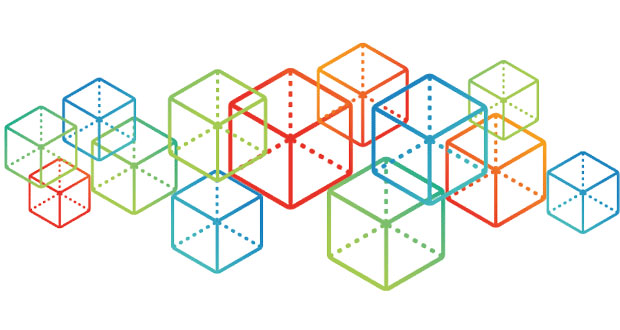 Web3.0 and the open Metaverse could transform how facilities are designed, managed, maintained, optimised and experienced. Andy Charalambous, Co-Founder of Renovi speaks to Piers Zangana of Susa Comms
Web3.0 and the open Metaverse could transform how facilities are designed, managed, maintained, optimised and experienced. Andy Charalambous, Co-Founder of Renovi speaks to Piers Zangana of Susa Comms
With the workplace experience at the absolute forefront in a competitive labour market, organisations are looking to innovative solutions to enhance how people work, interact and socialise. Web3.0 and the open Metaverse (or what we would once understand as being the ‘virtual world’) is high on the wish list.
While Web2.0 brought about user-generated content and social media where internet users access information through a central server, the next evolution, Web3.0, is based on decentralised applications, blockchain technology and enhanced user control over data.
This could be a game-changer for FM businesses and brands. Like Web3.0, the Metaverse is a decentralised system, and both allow users to own, use and trade digital assets, and have a virtual presence to showcase activity, and collaborate with others.
Businesses can utilise blockchain (which is essentially a digital ledger) to track, verify the origin, check for authenticity, and monitor their products and services either on site, or through their supply chain.
This transparency and control can help build trust with customers, and also help to differentiate brands in the market, taking businesses to another level.
DATA CONTROL AND SMART CONTRACTS
Web3.0 can also create cost savings through blockchain-based smart contracts. Self-executing contracts can automate tasks such as supply chain management or payment processing, reducing the need for intermediaries and associated costs.
Data such as maintenance records, equipment warranties, and service contracts, can be stored on the blockchain, ensuring transparency and traceability, reducing the risk of fraud, improving accountability, and enhancing trust between facilities managers, service providers, and clients.
Once established, facilities managers can offer customers virtual-guided tours or interactive digital signage, providing unique and engaging experiences, improving user satisfaction, and differentiation from competitors. The Metaverse can also support by remotely monitoring and controlling facilities from a centralised virtual environment.
With Internet of Things (IoT) sensors and connected devices, real-time data on energy consumption, temperature, security, and other critical parameters can be gathered and visualised within the Metaverse, allowing facilities managers to identify anomalies, manage maintenance tasks, and respond to emergencies promptly, increasing operational efficiency and reducing the need for physical presence on-site.
Data analytics and machine learning algorithms can also be used to optimise building performance.
By integrating real-time data such as occupancy levels, energy consumption, and equipment efficiency, facilities managers can identify patterns, detect inefficiencies, and implement measures to optimise resource usage and reduce operational costs, leading to more sustainable and cost-effective practices.
Smart contracts can automate contract management and facilitate secure transactions between facilities managers, service providers, and vendors.
ENHANCED PRODUCTIVITY
Web3.0 can streamline workflows, improve communication, and increase productivity, allowing team members across different offices or even countries to securely access and update project information in real time. Improved and more transparent data capture means businesses can analyse data with better integrity more effectively, leading to better-informed decision-making.
Whether it’s a virtual store showcasing products, a conference centre for 1,000 delegates, the Metaverse is already offering businesses a central platform to meet, socialise and transact. It also provides facilities or estates managers a platform to use virtual reality (VR) or augmented reality (AR) technologies to create immersive virtual designs, allowing them to explore different layouts, test environmental conditions, and make informed decisions regarding space utilisation, lighting, and equipment placement, saving time, reducing costs, and optimising layouts before they’re even built.
COLLABORATION AND TRAINING
Teams, meanwhile, can benefit from virtual training and simulations offered by the Metaverse, allowing them to practice emergency response scenarios, equipment maintenance procedures, and safety protocols in a risk-free environment.
The Metaverse also fosters collaboration between facilities management teams, service providers and stakeholders across different locations, with teams able to meet virtually to discuss projects, share information, and exchange, best practices in a more immersive and engaging environment than a flat video call.
BRAND AWARENESS
While different sectors are at different stages of their Web3.0 and Metaverse journey, a key driver for activity for many has been through the opportunities it presents for brands.
Right now, these platforms offer a new and innovative opportunity for brands to showcase who they are and what they do, to a new audience. Over the next few years, there will be an acceleration of activity from marketing departments to ensure that their brand has presence. It will be an extension of their existing communications vehicles.
Web3.0 has the potential to revolutionise facilities management by leveraging blockchain, IoT, and decentralised applications. The transparency, efficiency, and collaboration it fosters can enhance asset management, streamline vendor relationships, optimise energy usage, and improve user experiences within facilities.
Embracing these technologies can unlock new possibilities for facilities managers, allowing them to operate more effectively, reduce costs, and provide sustainable and user-centric environments. Outside of that, brands will simply want to be seen.
There will be sceptics out there. People in certain sectors doubted social media once upon a time, look how that panned out. Early adopters will help to drive and shape the evolution of FM within the physical and virtual workplace. That’s virtually guaranteed.





